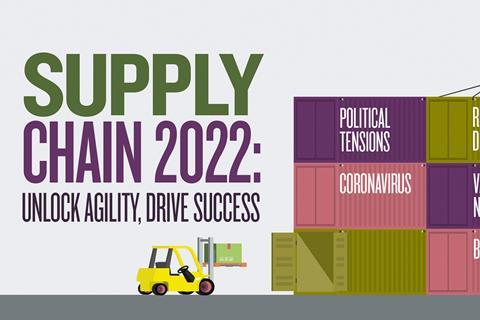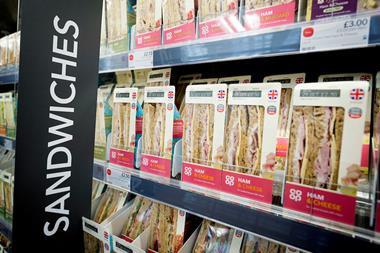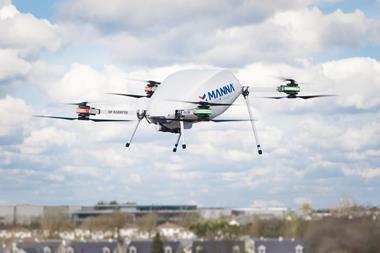PROMOTIONAL RESEARCH
Amid ongoing turbulence – from driver and CO2 shortages through to Brexit-based delays – Retail Week’s latest report brings optimism for retailers that smoother, more efficient and robust supply chains can be created
Supply chain disruption is at crisis point. HGV driver and CO2 shortages, inflated shipping costs and commodities, and greater ethical regulations for sourcing and manufacturing goods are just some of the challenges retailers are facing.
They have no choice but to turn this disruption on its head and Retail Week’s new Supply Chain 2022 report lays out the blueprint to do just that.
Produced in association with supply chain experts Bis Henderson Consulting, GreyOrange, Intersystems and Snowflake, the report shows why, and how, retailers must prioritise greater collaboration, brand purpose, tech adoption and data-driven decision making.
Spanning the first to the final mile, the report also presents case studies and success stories from retailers taking action to mend the weak links in their supply chain to become more resilient for the year ahead.
Here are just three of more than 30 examples showcased in Supply Chain 2022 that retailers can take actionable insight from for their business:
1. The Very Group: Making warehouse automation pay
In the report, we look at how retail innovation starts with warehousing and the businesses thinking outside the box and adopting new measures for storing goods and distributing online orders.
The Very Group is one such retailer. Its highly automated warehouse in the East Midlands went live during the first lockdown of 2020 with robots collecting products for dispatch or integrating returned items back into stock.
Chief information officer Matt Grest says the system includes a “pocket sorter”, which keeps popular products easily accessible. He says because of this automation, The Very Group can now accept an order and dispatch it in as little as 18 minutes.
2. Asos: Diversifying its supplier base to combat Brexit disruption
The impacts of Brexit and the pandemic on retail supply chains have been very real and are still likely to be felt in 2022.
In May, consumer data specialist Statista found 48% of UK businesses that have made supply chain changes since Brexit are using more UK suppliers, while 35% have increased the diversity of their suppliers.
A further 12% said they were using more EU suppliers, while 16% said they were using non-EU suppliers. This all paints a picture of new strategies and supplier relationships being established.
Asos, for example, now ensures all of its EU customer orders are fulfilled from a Berlin warehouse rather than the UK where orders were previously fulfilled. This move is enabling the fashion giant to mitigate shipping delays due to challenges in clearing through customs.
3. Walmart: Implementing AI-driven returns logic
Returns have long plagued retail but, as Supply Chain 2022 explains, it has become a deeper problem in the past 18 months. To tackle this, retailers have been coming up with solutions – with some not taking returns at all.
In the US, retailers such as Walmart have been allowing customers to keep unwanted items and refunding the purchase price instead.
Walmart is using AI engines to understand the cost associated with a return and then deciding whether it makes financial and logistical sense. For instance, if an item is large or inexpensive, they are making a call as to whether the cost associated with shipping the item back is too expensive.
While this solution would not work for luxury items, high-value goods or retailers that rely on low-value products in bulk – such as pureplay fashion retailers – it is one way of minimising the scale of returns.

Retail Week’s Supply Chain 2022 report provides the blueprint for retailers looking to sustain growth and achieve success in these new ways.
Access the report here today to:
- Finesse the first mile and navigate the warehouse space race
- Understand how to win the final mile – and whether rapid delivery is the be-all and end-all
- Future-proof your supply chain against the global backdrop
- Learn how to adopt sustainability into all aspects of your operations
- Discover the role of strategic alliances in making retail supply chains more resilient
























